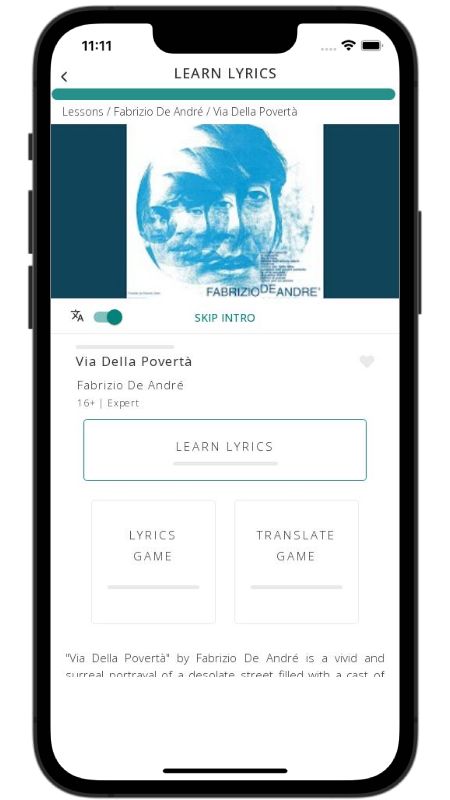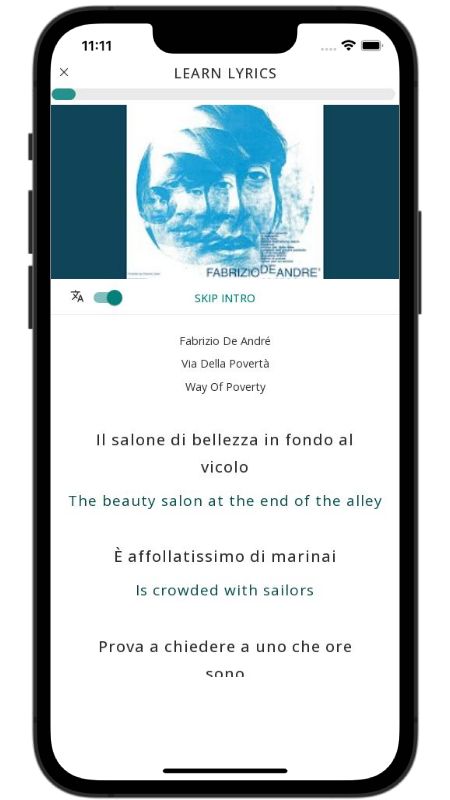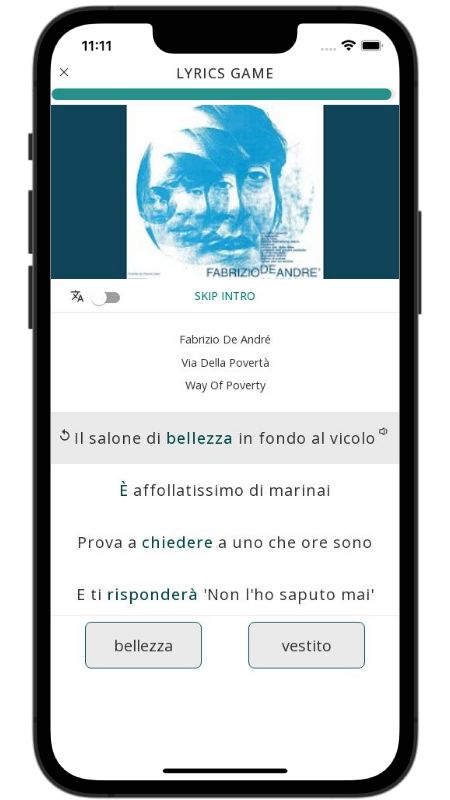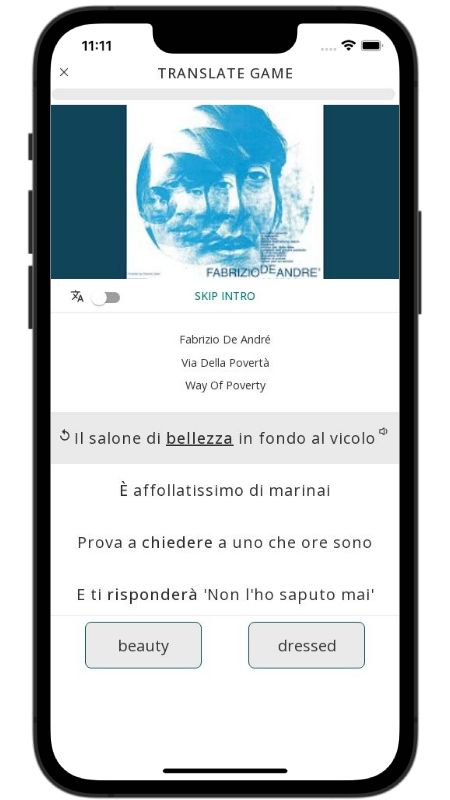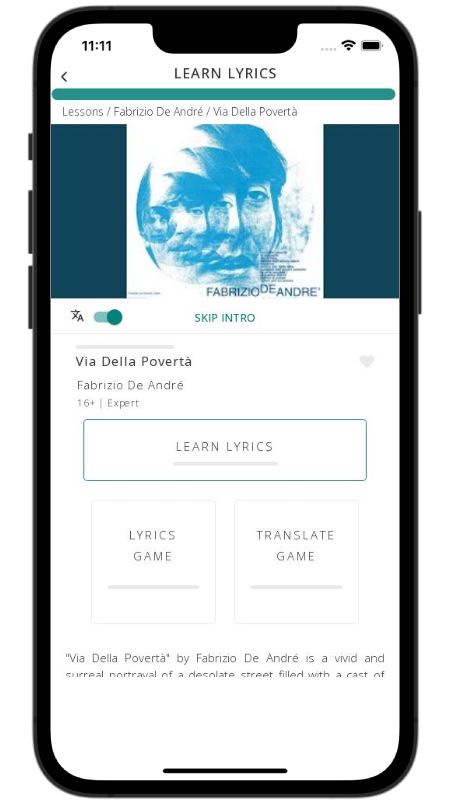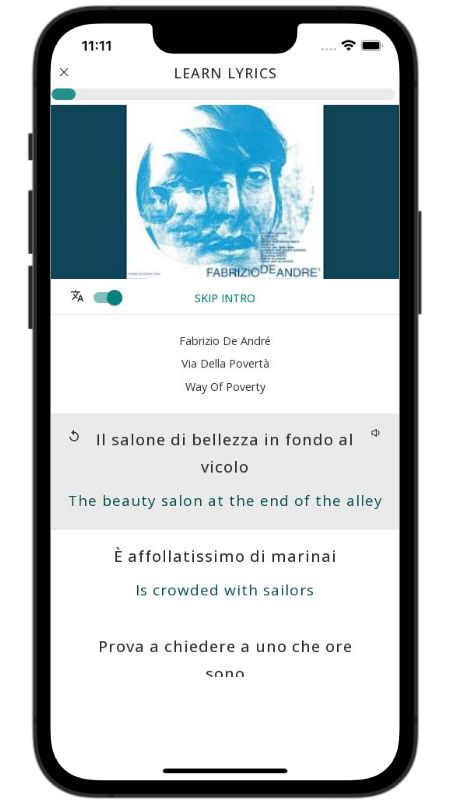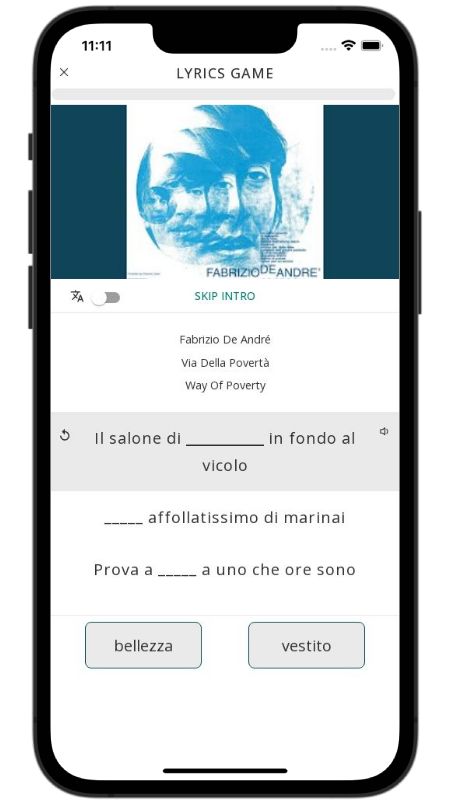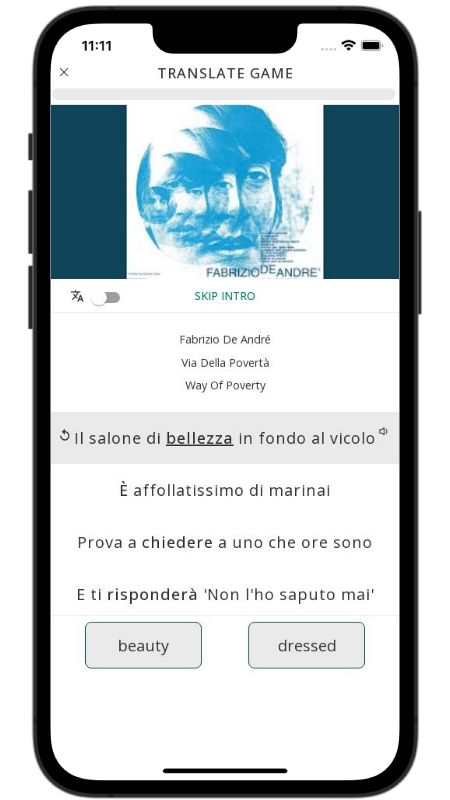Via Della Povertà Lyrics in English Fabrizio De André
Below, I translated the lyrics of the song Via Della Povertà by Fabrizio De André from Italian to English.
These lyrics have verified word for word translations. Click any lyric word to see the translation and hear the pronunciation!
The beauty salon at the end of the alley
Is jam-packed with sailors
Try asking one what time it is
And he'll answer: "I never knew."
The postcards of the hanging
Are on sale for a hundred lire each
The blind inspector behind the station
For one clue reads you your bad luck
And the restless law-enforcement
Are looking for something wrong
While my lady and I lean out tonight
On Poverty Street
Cinderella looks so easy
Every time she smiles she grabs you
She really recalls Bette Davis
With her hands resting on her hips
Breathless Romeo shows up
And shouts to her: "You're my love!"
But somebody tells him to go away
And never try again
And the only sound that stays
When the ambulance drives off
Is Cinderella sweeping the street
On Poverty Street
While the dawn is killing the moon
And the stars have almost hidden
The lady who reads fortune
Has left with the innkeeper
Except for Abel and Cain
Everybody's gone to make love
Waiting for the rain to come
To water down joy and pain
And the Good Samaritan
Is sharpening his pity
He'll go to the Carnival tonight
On Poverty Street
The Three Wise Kings are desperate
Baby Jesus has gotten old
And Mr. Hyde cries dismayed
Seeing Jekyll laughing in the mirror
Ophelia's behind the window
Nobody ever told her she's pretty
At only twenty-two
She's already an old spinster
Her death'll be very romantic
Turning into gold she'll go away
For now she paces back and forth
On Poverty Street
Einstein disguised as a drunk
Has hidden his notes in a trunk
He passed through here an hour ago
Heading toward the farthest Thule
He seemed so shy and scared
When he asked to stop here a while
But then he started smoking
And reciting the A B C
And to see him you'd never say it
But he was famous some time ago
For playing the electric violin
On Poverty Street
Everyone's getting ready for the big party
Somebody's starting to get thirsty
The Phantom of the Opera
Has dressed in priest's clothes
He's force-feeding Casanova
To punish him for his sensuality
He'll kill him speaking of love
After poisoning him with pity
And while the Phantom screams
Three girls have already stripped
Casanova's about to be raped
On Poverty Street
Well done, prankster Neptune
The Titanic's sinking in the dawn
Every berth in the lifeboats is taken
And the captain shouts: "There's still room!"
And Ezra Pound and T. S. Eliot
Are trading punches on the bridge
The calypso players laugh at them
While the sky is moving away
And leaning out their windows on the sea
Everybody's fishing mimosa and lilac
And nobody has to worry anymore
About Poverty Street
At midnight sharp the cops
Do their usual job
They snap handcuffs round the wrists
Of those who know more than them
The prisoners are dragged
Up an impromptu Calvary nearby
And Corporal Adolf has warned them
They'll all go up the chimney
And the wind laughs loud
And nobody'll manage to cheat their fate
On Poverty Street
I got your letter just yesterday
You tell me everything you're doing
But don't be ridiculous
Don't ask me: "How are you?"
These people you keep talking about
Are folks like all of us
They don't look like monsters to me
They don't look like heroes to me
And don't send me your news again
Nobody will answer you
If you insist on mailing your letters
From Poverty Street
Lyrics and Translations Licensed & Provided by LyricFind
Lyrics © Universal Music Publishing Group
Bob Dylan
Did you like this lyrics translation?
Did you know?
In addition to reading lyric translations, you can now learn Italian with music and lyrics from your favorite artists.
Yes, including Via Della Povertà by Fabrizio De André!
No more boring lessons. You can now learn with engaging and culturally relevant lyrics from the best artists.
Apple and App Store are trademarks of Apple Inc.
Google Play and the Google Play logo are trademarks of Google LLC.
MORE FABRIZIO DE ANDRÉ
iOS AppAndroid AppWeb LessonsFree PDF WorksheetsJoin ClassroomLyrics TranslationBlogAbout UsBuy as GiftLifetime
